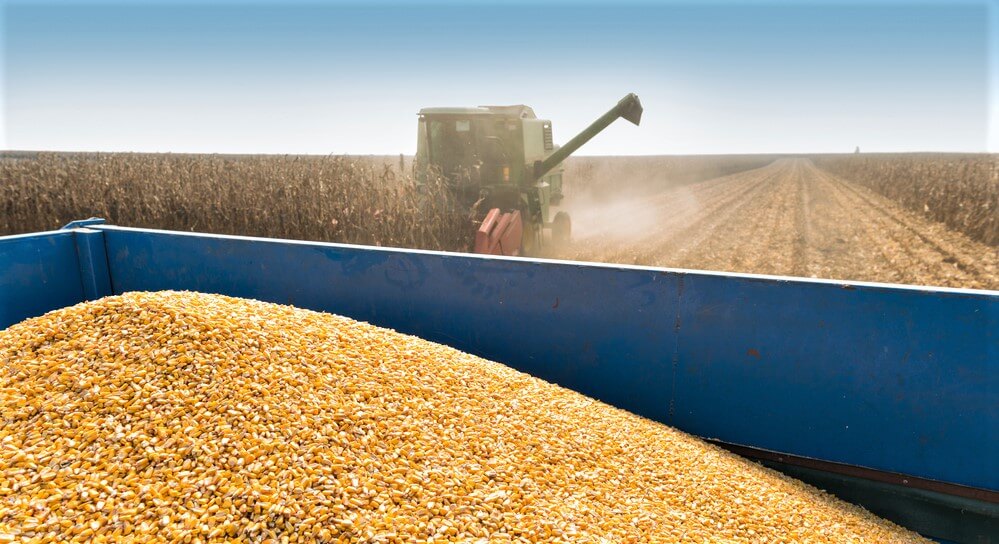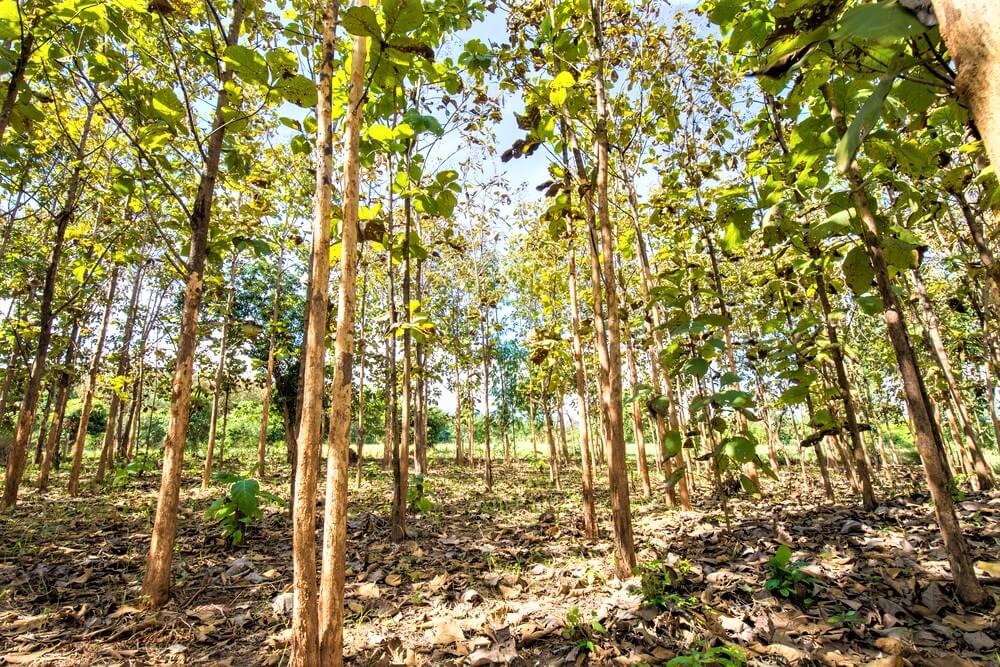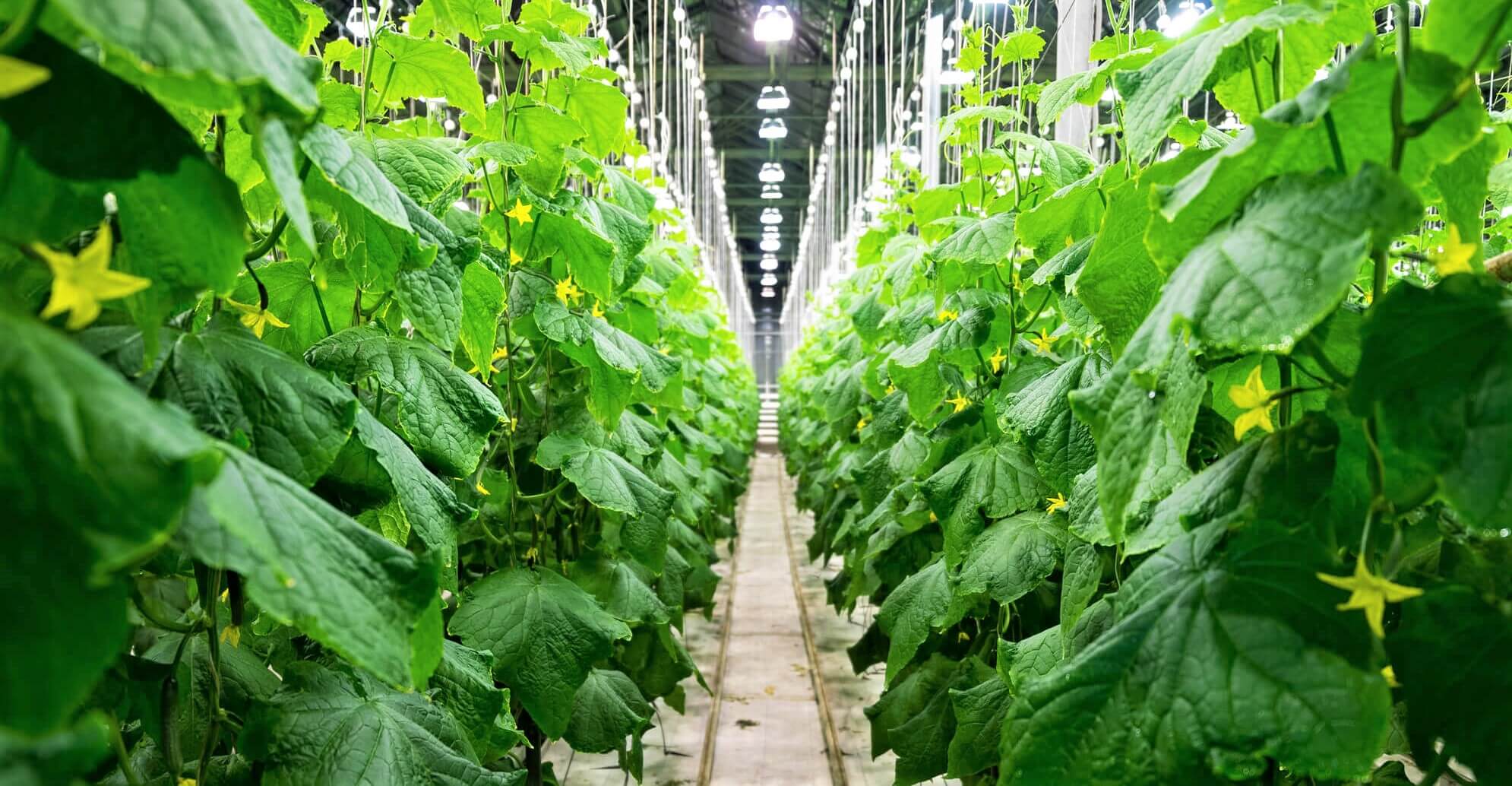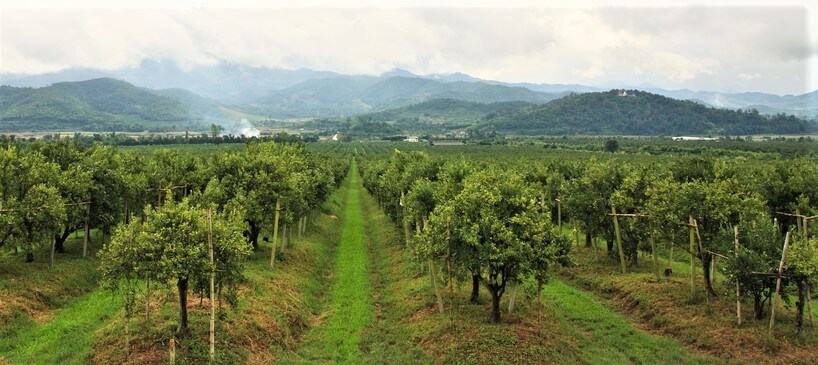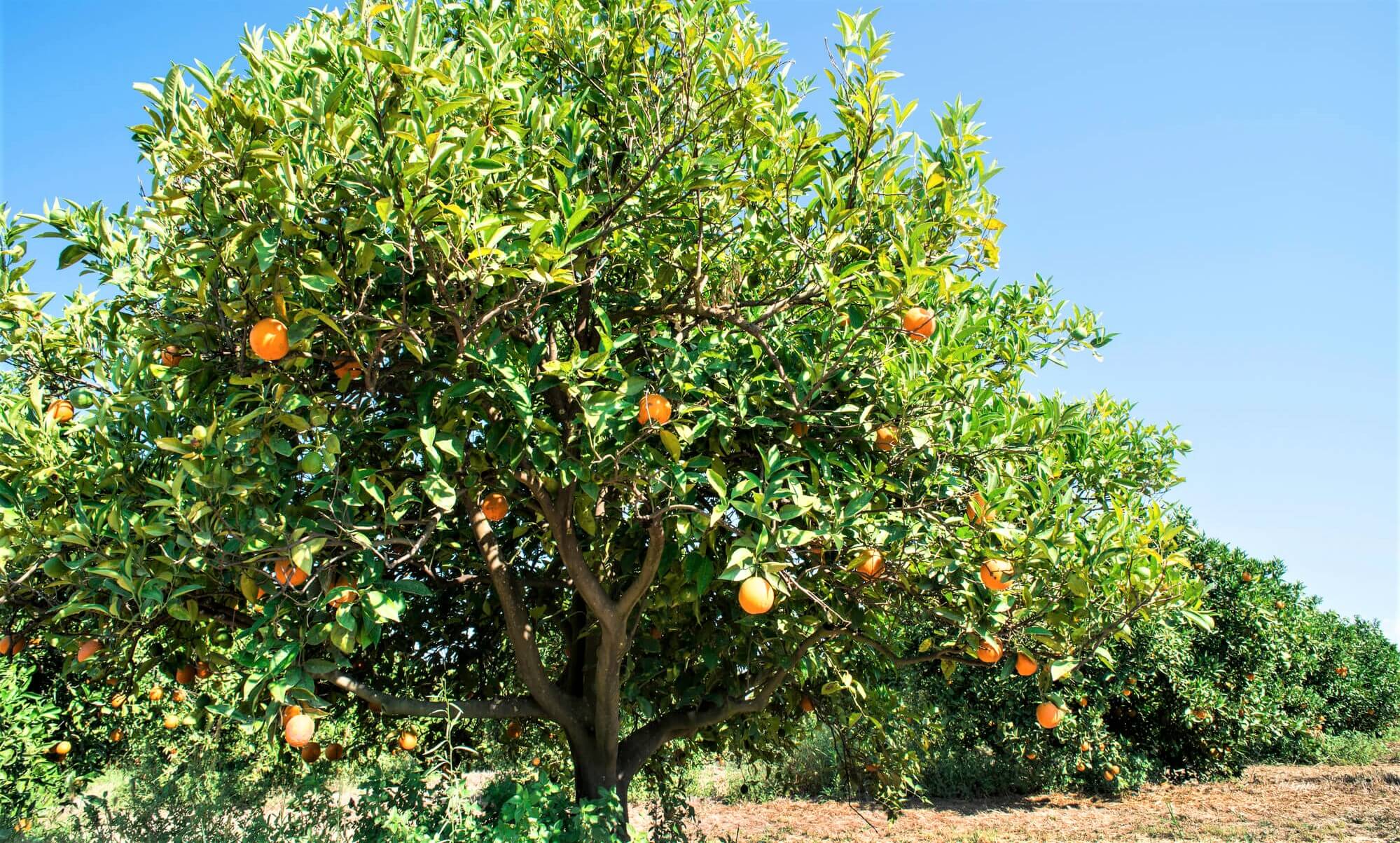Inflation is coming. No, inflation is here… big time. And not just in the United States… it will likely be a lasting …
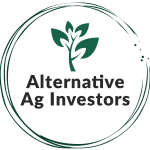
Alternative Ag Investors Passive Income From Farmland Ownership
Specialty Coffee
Offer at a glance:
- Location: Boquete, Panama (Chiriquí Province)
- Price: $10,000 USD per unit
- IRR: 12%
- ROI: 7.06% Annualized; 291% total over 20 years
- First harvest payment: 3 to 5 years from investment date
- Duration: Perpetual; continual re-planting as trees age
- Term: Share Ownership/Syndication
- Project size: 56.5 acres (22.6 hectares) comprising 295 units
- Minimum purchase: 2 units ($20,000)
If you’re interested in more details, including the company brochure and full financials, click the link below and learn how this opportunity can be a part of your portfolio.
Investing in Coffee = Long-term Wealth
Originating in Ethiopia, coffee production and consumption is now a worldwide $460 billion industry. Specialty Coffee is priced based on its high quality and limited supply, so unlike the market for coffee futures, it isn’t manipulated by traders and speculators.
Just to be clear, we’re not talking about the common Arabica or Robusta varieties. No, in this case, the company is growing the high-demand Pacamara and world-famous Geisha varietals with some Moka and Pink Bourbon thrown in for good measure.
Your return on investment grows steadily from a modest 3% in year 4 to 15% in year 8 and 30% in year 15. This is a serious legacy investment that will continue to payout significant returns year after year.
Demand and Marketing
Coffee is a huge industry and growing. Demand is strong. And because of the specific varietals grown in this project, the demand for your coffee will be even higher.
The global specialty coffee market is projected to leap from about USD 53 billion in 2021 to over USD 152 billion by 2030 – almost tripling market size in just 10 years. That’s an amazing Compound Annual Growth Rate (CAGR) of 12.32%.
The wholesale price for run-of-the-mill coffee hovers around $2. That’s the coffee that goes into Folgers or even your syrupy, over-priced Star Bucks cup of coffee served up by a barista. However, a recent blind auction sale of the company’s Geisha coffee brought an eye-popping $31 per pound! That’s an above-average price, for sure, but a good indicator of what’s possible and the direction the industry is headed.
The growth of coffee shops across the U.S. and Europe is fueling the specialty coffee industry. As the palates of coffee drinkers become more sophisticated, the more they crave specialty coffee.
Over the last 8 years, the company has invested a lot in developing its marketing channels. Now that these channels are starting to bear fruit, most of the heavy lifting is already done, and they can simply add the coffee from new farms into the established distribution system.
The company’s primary distribution partner, Typica, uses an online platform connecting dozens of coffee producers to over 3,000 coffee roasters worldwide. Using this platform, they are cutting out the middlemen who took most of the profit away from producers and controlled the market for years.
The company now regularly speaks with roasters and buyers worldwide, sends samples, discusses tasting profiles, and builds relationships online, while Typica handles the sales and distribution.
A key part of the business model is to be able to supply micro-lots of single-origin, traceable, specialty coffee. Coffee that scores 80 points or more on the stringent Specialty Coffee Association (SCA) scoring system can be traced all the way from seed to exportable green bean in the hands of the producer.
Risk and Inflation Hedge
One of the most important aspects of growing coffee is that it is a non-perishable product. Unlike fruits and vegetables that might have a few weeks at most from harvest to the end of their shelf life, once coffee is processed it can be stored for long periods of time and is therefore unaffected by logistical dislocations.
As suggested above, there is a huge difference between the coffee commodity markets and the sale of specialty coffee. Having their own on-site processing facility enables them to produce micro-lots of single-origin, traceable specialty coffee to order. These coffees sell for 2, 5, 10 even 50 times the rate of commercial coffee. In 2019, a Japanese buyer paid $1,029 for a pound of Geisha coffee from the highlands of Panama.
Growing coffee is all about soil condition, altitude, water, shade trees, average rainfall and hours of sunlight. The land acquired for this project ticks all the boxes. With an altitude topping out at 1,900 meters, this is the perfect land for growing coffee, especially Geisha.
Like any crop, various diseases and pests can impact coffee. The company makes sure that decaying matter at the base of coffee plants is removed, reducing the likelihood of fungal infestations and insect problems. More importantly, the bushes are planted in a way that enhances drainage, thereby protecting them from root rot and related diseases.
Growing and Processing
The company has a long history of taking over distressed farms and turning them around by planting more efficiently and planting varieties that command top prices. This new project is comprised of 2 farms that are adjacent to existing lands already under their management.
Like many small farmers, the previous owner lacked the capital and energy to completely turn the operation around. However, he had already planted 10,500 Geisha and Pacamara trees. The project will be completed over the next several years by planting 56,000 more trees.
The productive lifespan for high-quality specialty coffee plants is 12 to 15 years. So instead of waiting for the farms to pass their peak and start over, the company uses a crop rotation system and establishes nurseries 5 years ahead of time.
Soil from the farms, seeds from their trees, and labor from their farm workers is used. So, at a nominal cost, they create nurseries to replace all the existing, older trees.
When strong enough, the new saplings are planted between the rows of the producing adult trees. They grow protected by the canopy’s shade above until they reach production. At this stage, the adult trees are removed, processed into mulch, and returned to the farms as fertilizer, and the new trees that are already established will produce for another 12-15 years.
This process can be repeated over and over again, with no need to rest the land in between cycles due to sustainable farming practices and no-till farming.
There is no need to wait for the post-harvest facilities to be funded and built. They are already in place, operational, and fine-tuned annually after the last 7 harvests. This includes proprietary state-of-the-art coffee processing facilities and quality testing laboratories supported by in-house agronomists and engineers. The company has the infrastructure in place to grow, process, and sell at least 200 metric tons of specialty crops and finished products annually to a global market.
A Socially & Environmentally Responsible Investment
Socially responsible: These new farms will employ up to 10 more coffee farm workers, creating much-needed employment in the community. The new farmers and their families will receive full Social Security, medical, health, and dental benefits and be relocated and housed on the new farms. There they will live, work, raise their family, and develop and protect the farms as if they were their own. These 10 additional farming jobs will positively influence the lives of at least 75 Boquete community members.
Throughout the pandemic, when the country was on lockdown, the company kept 100% of their farmers employed and added financial and logistical support when any farmers or family members caught COVID. This was at a time when most companies in Panama furloughed their employees and they were left to survive on $100 per month from the government.
As a critical part of their business model, the company provides vastly improved living conditions for the workers and their families; basics that we take for granted like electricity, running water, flushing toilets, showers, gas stoves, and real beds.
Environmentally responsible: A vital part of the process is constantly studying and evaluating the farm eco-system by their in-house agronomists and value chain analyst. A “closed-loop” coffee processing mill is used so that no byproducts are generated from the depulping or washing of the coffee.
The state-of-the-art wet mill uses less than 10% of the water of a traditional mill and even that 10% is recycled. The cherry pulp that is removed during processing is used to create fertilizer and compost, with the help of the thousands of California Red Earthworms. The resulting liquid food is sprayed directly onto each and every tree individually during the harsh dry season to protect them and keep them healthy and nourished.
The Company
The company has been in business since 2014 and has been laser-focused on growing and processing two products: cacao and coffee. Their business model pairs the two products in their marketing efforts since both are premium varieties that command a high price in the market.
This makes the 12th coffee farm operated by the company. It has been three years since their last offering, which quickly sold out. It’s important to realize that the company has existing assets and infrastructure (drying, processing and milling facilities) already in place and operational, with zero debt.
The company’s early years involved raising private investor capital to acquire and “rehab” old, under-performing coffee farms in the area of Boquete, Panama. Looking to diversify, cacao and chocolate making were added to the portfolio and they now have over 350 hectares (870 acres) of coffee and cacao under production.
In addition to the existing farms, they also own and operate two post-harvest processing facilities and the two chocolate factories in Belize and Panama. The company offers professional, turnkey management with long-established expertise in coffee farming and processing.
The Offer
This is a syndication or subscription offer. The company is seeking $2,950,000 in financing for a maximum of 295 units. You don’t own the land directly; you and the rest of the 295 subscribers collectively own the land and you split the net profits with 70% going to the subscribers and 30% to the company. The company takes care of land development, planting, pruning, harvesting and processing.
The price per unit is $10,000 with a 2-unit minimum. Distributions begin following the 3rd crop year. The company maintains a large nursery to service the existing 11 plantations, so the build-out of the new land will take place quickly.
Processing and marketing practices are firmly in place and already proven.
Because the harvest increases year over year, the 20-year 7.06% annualized ROI means an entry-level $20,000 investment yields nearly $80,000 over that period and annual payments in perpetuity.
Because this is a syndication (meaning you have an ownership share instead of holding title to the land) the normal prohibition in Panama from titling land within a trust doesn’t apply. You can own your units directly in your name, within a tax-protected account such as an IRA or 401(k), an LLC or other legal entity or your trust.
More importantly, private placement offerings such as this one typically require a minimum buy-in of $100,000 or more. The fact that you can buy your own stake in the lucrative coffee market for just $20,000 is huge. Both accredited and non-accredited investors can still participate in this exciting opportunity.
The Bottom Line
Investing in this cacao project is a great opportunity at a great price point. The 290%+ ROI over 20 years is just the beginning since production in the out years only increases.
You have the assurance that the operating company is not only experienced in growing coffee but has a proven track record of meeting deliverables and making money for their investors.
The crop is sold outside of the typical wholesaler market and is not impacted by the futures markets. Risks are known and manageable. This is a strong investment in social responsibility yielding a continuous passive income stream.
This opportunity is perfect for people:
- Who understand the value and importance of sustainable farming
- Seeking lower entry point farm ownership opportunities
- Looking to invest in projects with a strong social responsibility commitment
- Building a portfolio that is not correlated to the stock and bond markets
- Looking to create a hedge against inflation while minimizing financial risk
- Seeking off-shore investment opportunities
- Seeking a recurring passive income revenue stream
If you’re interested in more details, including the company brochure and full financials, click the link below and learn how this opportunity can be a part of your portfolio.
BLOG POSTS
Regardless of what you may think about the recent antics involving GameStop and other stocks, you may have noticed that folks who …
If you’ve been thinking about putting some of your money into farming, congratulations – you’re the type of person who thinks outside …
According to the U.S. Department of Agriculture, roughly 15 billion bushels of corn are grown in an average year in the U.S. …
Are your loved ones prepared for uncertain times ahead? Will they have enough financial resources to weather rough times? Do they have …
Are greenhouses the wave of the future for produce farming? Many experts think so and it might be time for you to …
Farmland. It’s a tremendous long-term investment and, like most alternative investments, you can get some idea of its value by who chooses …
You’ve been working hard and looking down the road towards the day you get to stop working. You’ve been socking away money …
You’ve got some investments but you’re worried about the future. You’ve done your research. You know it’s critical that you diversify your …
Although not an exact quote, that line from Samuel Taylor Coleridge’s 1798 poem the Ancient Mariner is becoming increasingly true at a …
Most of my blog posts are topical, but this week I’m writing about my inspection tour of the greenhouse that my wife …
My Fair Lady Mangos Shortly after booking my flight to Panama, I learned that there had been a fire on the …
During my last trip to Panama, I met with the president of an amazing company that produces specialized coffee and cacao. I …
Update: I originally wrote this blog post on May 29. I knew things were bad at that point, but now they are …
Owning managed farmland is a smart investment. Managed farmland consistently increases in value, is a strong inflation hedge, outperforms the stock market, …
My wife and I reprised our Maui honeymoon during the first 10 days of September and had a fabulous time. When we …
In 2008, as the U.S. and the world were facing a dramatic economic downturn, NuWire Investor developed a list of the top …
Sometimes I hate it when I’m right. Unfortunately, my prediction early last year that we would suffer serious inflation in 2022 has …
Over the years, I have been frequently asked what sustainable agriculture is and why it’s important. And last month Jose, a prospective …
Eight billion. According to the United Nations, that’s the estimated milestone population of the Earth as of November 15. The most current …
Amazing! I recently returned from a multi-day tour of the AgroNosotros coffee and cacao farms in western and north Panama and was …



